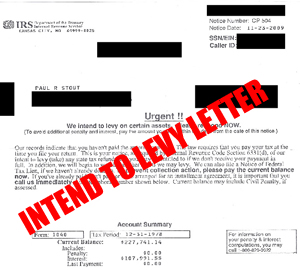According to Law360, Taxpayers who have offshore virtual currency accounts should report them on a Foreign Bank and Financial Accounts form despite a lack of clear guidance from the Internal Revenue Service, as staying silent could be support for allegations of willful nondisclosure.
Cryptocurrencies, including popular digital tokens like bitcoin and ethereum, are widely traded and their transaction recording technology, called blockchain, has drawn interest from banks and other established financial firms. However, the industry is still a virtual Wild West in some ways, to the point where the IRS has not yet issued guidance covering all facets of the technology’s use, including whether taxpayers should report offshore cryptocurrency accounts on their FBAR forms.
Taxpayers facing this ambiguity, along with the fast approaching April 17 deadline for filing FBAR and other tax form, should play it safe and include offshore cryptocurrency accounts in their reports, said Victor Jaramillo, who is of counsel at Caplin & Drysdale Chtd. He said taxpayers could land in hot water for not reporting virtual currency accounts that they think might qualify for an FBAR, but there’s little downside to disclosing them.
Penalties for not reporting, can be significant. If the IRS believes a taxpayer willfully avoided filing an FBAR, rather than unknowingly neglected reporting requirements, the agency can lodge a civil penalty that is either $100,000 or 50 percent of the balance in the foreign account, whichever is more.
However, even if a taxpayer decides to include an offshore cryptocurrency account on an FBAR form, the process is not necessarily clear-cut. Jon Brose, a partner at Seward & Kissel LLP, pointed to the volatile nature of cryptocurrency valuations.
“It may be difficult to fill it out accurately because it’s so volatile,” he said. “It may be difficult for you to know what your highest balance was, because there’s no reporting on this, there’s no tracking. You can take a guess.”

“I think it’s pretty clear that if you have an account in an exchange and if that exchange is located overseas, then I’d be hard pressed to think why you’re not reporting that on an FBAR if it meets the $10,000 threshold,” said Jaramillo, referring to the minimum foreign account amount that triggers the reporting requirement.
Jaramillo pointed to the John Doe summons that the IRS has served virtual currency exchanger Coinbase Inc. to investigate whether the company’s customers avoided paying taxes on transactions made through the company.
In 2014, the IRS issued guidance saying it would treat bitcoin and other virtual currencies as property, not currency, for federal tax purposes. The agency’s stance means that taxpayers realize a gain or loss on the sale or exchange of virtual currencies, which they must report with the rest of their taxes.
While the IRS currently does not have cryptocurrency guidance when it comes to FBAR forms, it would be “foolish” for them not to put something out, said Rita Ryan, an associate at Vacovec, Mayotte & Singer.
As for what potential guidance could look like, Anthony Tu-Sekine of Seward & Kissel cited a July 2016 Ninth Circuit ruling. In the decision, a three-judge panel found that a California man’s online poker accounts did not count as foreign financial accounts that required disclosure, but that an online transfer account he held with the U.K.-based company FirePay should have been reported on an FBAR.
The case, USA v. John Hom, lays out different factors that someone with an offshore virtual currency account could look at, Tu-Sekine said. First, there’s the location test, which Tu-Sekine said was “fairly easy” because an account simply must be located outside of the U.S. to be reportable.
However, the question of what kind of accounts are required for disclosure gets a little bit trickier, Tu-Sekine said. He noted that the analysis will depend on a number of factors, such as whether the taxpayer can send currency that will be exchanged for bitcoin or if the account only trades in cryptocurrency.
"It becomes really fact specific, but I think if it’s the kind of account where you can send your money and then buy bitcoin on that exchange, or send your bitcoin there and then maybe you can sell it at that exchange and then transfer it back to your bank account, I think you’re probably much closer to a financial account,” Tu-Sekine said.
Do You Have an FBAR Problem?
Contact the Tax Lawyers at
Marini & Associates, P.A.
for a FREE Tax Consultation
Toll Free at 888-8TaxAid (888) 882-9243

















